QuestionThank you for the incredibly detailed response. Your expertise has not and will not go to waste, as I have made a printout of your knowledge and plan to use that as my tortoise bible.
Upon reading your answers, the compact coil has been pitched and will be replaced as soon my reptile-UV order comes. With it is coming; the Mercury Vapor lamp at 160 Watts, the 60 Watt spot lamp. This coming weekend I plan to re-do the substrate situation according to your specifications. A few inches deep of the coconut fiber with some sphagnum moss lightly misted all over and compacted gently with my fists should make it a much more humid, and easier to walk in environment. I will slightly turn up the heat and locate the coming spot bulb better so that the entire table is not 100F, just the basking area with the rest of the table hovering close to 80 degrees. The fresh tortoise bale did arrive today, I will start to wean them off of the commercial tortoise diet and onto the new hay which is mainly Timothy/Bermuda hay. I will make sure the wean is slow and painless as I would rather not rock their boat any more than it has been...
Vitamin D3 has been ceased all together, but I will continue the Ca : P supplementation, however, much less than I was. Perhaps only once a month with the remaining percentages coming directly from their "new" upcoming diet.
In answer to some of your behavioral questions:
They have been the exact same since I received them, no tapering for the better or worse. They are clearly responsive and retract any appendage when squeezed. They open their eyes in much the same way as a baby human would. First they respond to physical stimulus and make facial expressions (clearly awake and responsive) and then they decide "fine I'll open my eyes to see what is going on" moments later. I suppose the very weak appetite as well as the sparse and tiny excrement has gotten me all worked up. Perhaps even if this was just normal juvenile-tortoise behavior, and I did not "really need to" write an e-mail of concern, I would not have been able to make such resounding changes in not only the way they handle themselves in a healthy environment, but how beneficial your response was for me, ensuring that they are given the proper husbandry to live a long, happy and healthy life. My appreciation for your TIME & EXPERTISE.
Most Sincerely,
Phil
AnswerThank you, Phil.
If my answers helped you greatly, please consider donating to my reptile rescue http://www.freewebs.com/wichitafallsreptilerescue
I wish to tell you that I appreciate your promptness in getting the information I needed, and your willingness to acquire the equipment and supplies you needed.
The G. sulcata is definitely NOT a recommended species for a beginner in my opinion, as they grow very large, can be destructive, and are very long lived. I have an acquaintance who has a pair which are about a decade old and over 80lbs, and they are still not full grown.
Even more important than experience sometimes, is the motivation to learn and willingness to obtain necessary equipment as soon as you know you need it. That counts for a lot. You do still have a sea of information to wade through ahead of you.
I appreciate the kind words, but bear in mind still, I am not a G. sulcata expert, per se; just to illustrate the detailed issue to you. I am a reptile generalist expert for the most part, and my primary expertise is box turtles, rattlesnakes, and lizards. That is how detailed this can get. Think if me as a general practitioner in reptiles ( so to speak ), but with 20 years experience in many genera. Even though I do not consider myself a sulcata expert, I do keep tortoises and consider myself a general tortoise expert with knowledge of sulcata through other long time keepers I have known.
Remember, that some people will insist that sulcata should be kept completely dry. I disagree, as in the wild they will burrow very deep underground where it is humid, in order to maintain hydration stasis. That seems a no brainer to me, and that if they are not allowed to burrow several feet underground outside as would be the case in nature, then they need to be provided some humidity in the substrate. Some recent opinions from sulcata owners tend to agree with that, and sulcata are known to wallow in mud holes too in the wild. So long as their humidity is not excessive for extended periods, nor the temperature too low, and they do have an alternative nice dry and hot place to use ad libitum - they should be fine.
Also keep in mind that others may insist on D3 supplementation. These people may be considered G. sulcata experts, but they may not have nearly the veterinary medical experience and information I have as a reptile rescuer. I am frequently telling local vets how to proceed when it comes to treating reptiles. Surprisingly, some are not aware of the dangers of vitamin A injections, Baytril injections, or injections in the rear half of the reptile which may damage the kidneys. D3 supplementation is merely a way to get around not providing enough UVB, remember that when people tell you otherwise in the future.
For more G. sulcata information, I will refer you to some good websites to compare information. Cross compare information you get, because some will conflict, and some may indicate personal preferences. Some say don't use a lot of fresh greens, but I know sulcata keepers who use bundles and bundles of them with no problems. Granted, these sulcata live outdoors in Texas however. It is pretty well understood however, that lettuces are too moisture rich and not very nutritious. They should be used sparingly as treats, and for that I recommend Romaine of them all, alternatively red leaf or green leaf - never iceberg lettuce.
If you have any follow ups or other questions, feel free to contact me again. If I am not available here, you can reach me through my website above.
Mick
http://www.sdturtle.org/AFRICAN%20SPURRED%20TORTOISE%20CARE%20SHEET.htm
http://www.chelonia.org/Articles/sulcatacare.htm
http://www.anapsid.org/sulcata.html
http://www.tortoise.org/archives/sulcata1.html ( some humorous information, but this person uses a lot of alfalfa, which many do not recommend, especially for adult tortoises. )

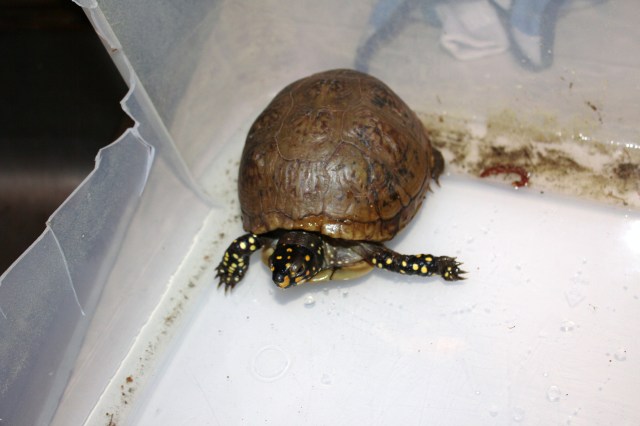 Help identifying a turtle
Question
Turtle
I need help identifying this turtle I f
Help identifying a turtle
Question
Turtle
I need help identifying this turtle I f
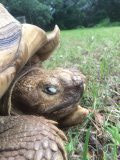 sick spur thigh
Question
Right Left
African Spur Thigh, T
sick spur thigh
Question
Right Left
African Spur Thigh, T
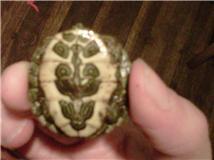 baby turtles
Question
underside of turtle
We found these baby turtle
baby turtles
Question
underside of turtle
We found these baby turtle
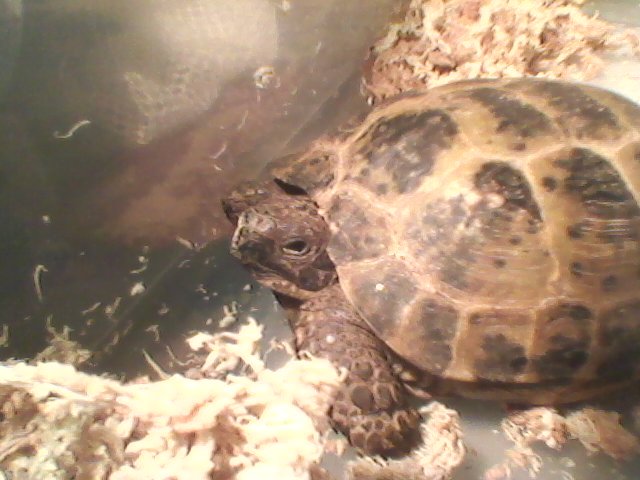 Russian Tortoise Questions
Question
Ayden the Tortoise
Hello, my name is Mi
Russian Tortoise Questions
Question
Ayden the Tortoise
Hello, my name is Mi
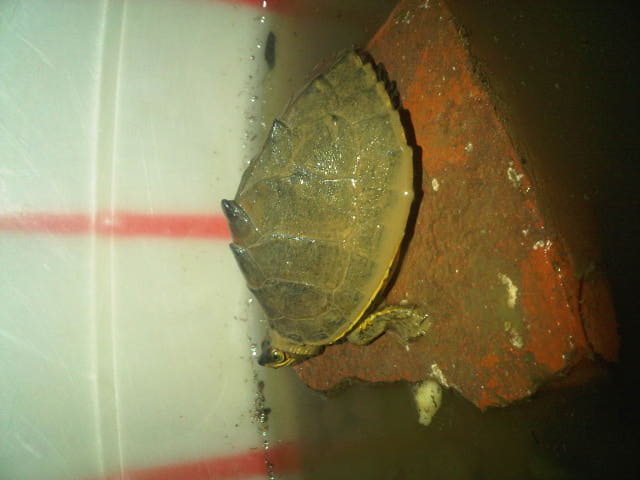 q.
Question
Sir I want to know about this t
q.
Question
Sir I want to know about this t